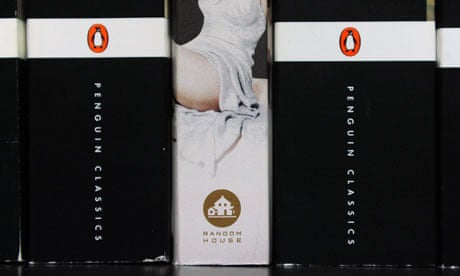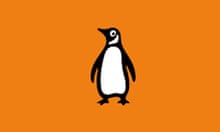Fear of Amazon may not yet be a phrase in the dictionary, but it is the sentiment that underlies the proposed merger between Random House and Penguin, to create a super-publisher with worldwide revenues of £2.6bn. Yet, the curiosity is that for all the underlying worry, the book industry remains far healthier than other media segments battered by the digital revolution.
Ebook sales are lifting off – helped not least by discreet readers of Random House's Fifty Shades of Grey trilogy – and in the first half of this year soared by 89% to £145m in the UK. Printed books, meanwhile, were only slightly affected, dipping by just 0.4% in value to £982m – meaning that, taken together, the books market in Britain at least was up 6% between January and June 2012.
That contrasts sharply with the declines seen in the music business in the UK and globally that have seen the industry gradually shrink from six music majors in the 1990s to the three today. But with Amazon dominating 90% of the ebook market, publishers believe they need sheer size to maintain their position in a business where technology and commercial relationships are changing fast – already shown by the demise of high-street chains Borders and more than 2,000 bookstores since 2005.
David Roche, the former chief executive of Borders UK, says the merger is justified simply because "it is very important to have healthy publishers – because they do the work of selection, editing for readers". He believes, also, that if Pearson, Penguin's British owner, is not fully committed to the business, then "actually, it's better off" as a minority part of an enlarged group controlled by Bertelsmann-owned Random House.
Book publishers are also eager to gain some power over setting consumer prices, switching in Europe (but not in the US) to an "agency model" in digital where they – rather than Amazon – choose what to charge, in return for handing over a fixed percentage at or around 30% to the digital retailer. That compares to the traditional model, where publishers charge a trade price, leaving it to the retailers to choose how to charge and discount.
The move to agency-selling with one less major player reduces cut-throat competition between hoped for bestsellers in the runup to Christmas, for example, and could help sustain higher prices – although it is precisely these sort of notions that trouble competition watchdogs. At the same time, if publishers felt the need to become their own retailers, the Penguin brand, in Britain at least, is arguably the best known to consumers, and could be a place to start.
Agents and authors are already calling "scary" the prospect of a transatlantic publisher housing – as well as EL James – Salman Rushdie, John le Carré, Pippa Middleton, Richard Scarry and Jamie Oliver.
But Roche also argues that there is "far more change to come" in the books business, reflecting an underlying industry nervousness. Pearson sources, seeking to justify the deal, point also to emerging competition from self-publishing – once considered a vanity activity. In July, the British group bought Author Solutions, a US-based self-publisher, for $116m (£72m) – to gain a foothold in generating revenues from a sector that grew by 60% to reach 211,000 titles in 2011, according to figures from Bowker, the US books market researcher.
The result of a combination between the businesses is that Penguin, founded in 1935 to offer the public quality affordable books, would end up as about 40% of the proposed group assuming it was structured as a nil-cash merger, according to Deutsche Bank analysts. Random House gained profits of £161m against Penguin's £111m last year, although the larger company was already flattered by the sales of EL James's sado-masochistic phenomenon.
However, with Universal Music's takeover of EMI setting a new 30%-plus bar for market share acceptability, the book combination looks unlikely to unsettle regulators. This is a point likely not lost on Thomas Rabe, the Bertelsmann CEO who is a veteran of the German group's music industry mergers – the surprise deal that led to the creation of Simon Cowell's employer, Sony BMG. He will hope too that Pearson and Bertelsmann can reach a better consensus on who to run the company: the music joint venture was hurt by arguments between its shareholders until Sony bought Bertelsmann out.
On the evidence of the first nine months of 2012, Random House, currently top, and Penguin, at number three, would have a combined share of 31.4%, although 4% of this is probably accounted for by the Fifty Shades effect alone. In the US, the two, ranked first and second, achieved 29.4% in the same period, according to Nielsen Bookscan.
Significantly, the merger proposal, described as quite advanced, comes as Dame Majorie Scardino enters her final months as Pearson CEO. She was always personally engaged, approving some of Penguin's largest advances, even if Pearson is principally an educational publisher today. But it is not certain whether she will be allowed to conclude the deal smoothly: over at the News Corp-owned HarperCollins, executives are openly wondering if Rupert Murdoch will make a counter move.





